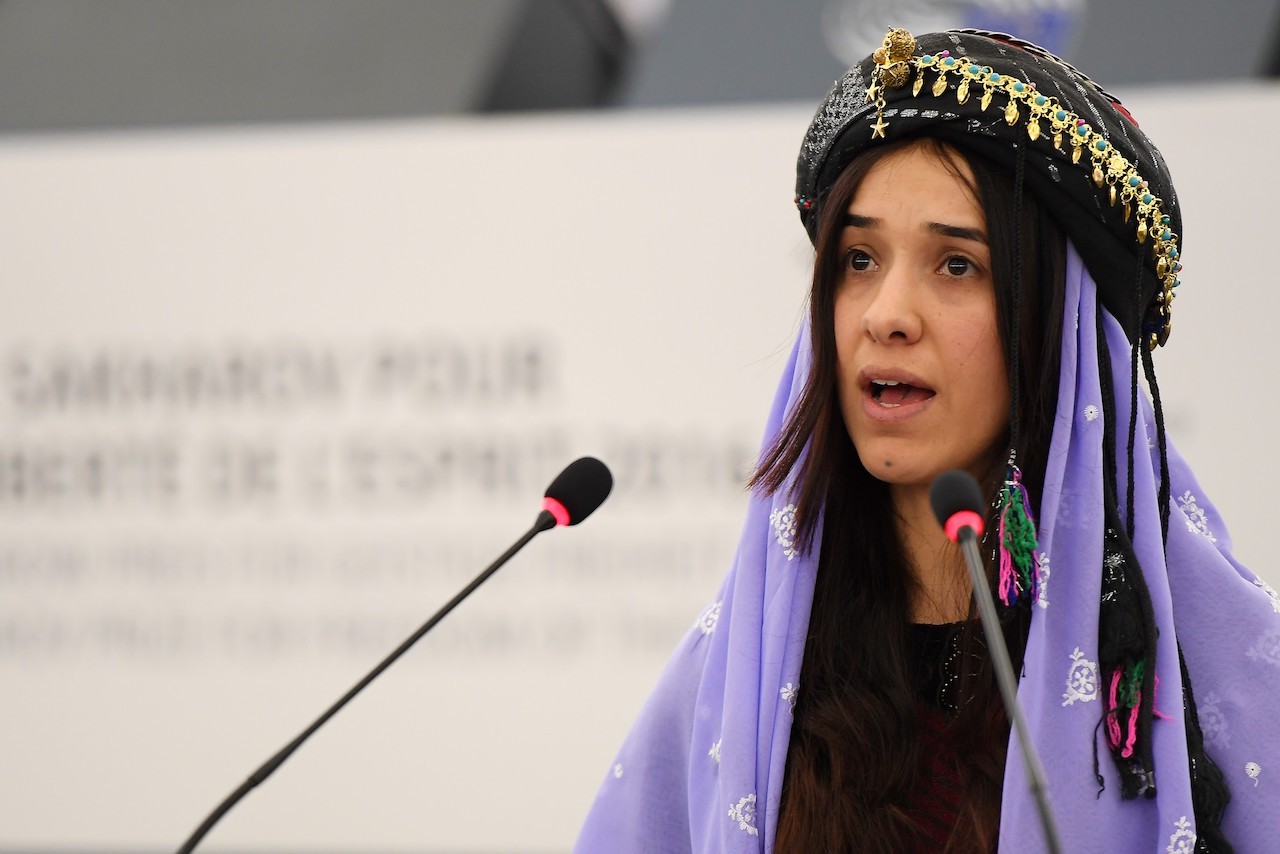Popular Reads
Top Results
Can't find what you're looking for?
View all search resultsPopular Reads
Top Results
Can't find what you're looking for?
View all search resultsDo our politicians care about sexual violence?
Why the reluctance? Social, group or peer pressure? Turning a blind eye to the issues? Denying the issues to be real?
Change text size
Gift Premium Articles
to Anyone
N
adia Murad was a teenage girl in the village of Kojo, Iraq. She dreamed of completing secondary school and working in a beauty salon or taking other jobs. Her dream vanished when in 2014 the Islamic State (IS) attacked and killed the people of her ethnic group, the Yazidi-Kurds. Her mother and six brothers were brutally murdered. Nadia and hundreds of girls and women were kidnapped, repeatedly raped, tortured, sold as sex slaves, even sex trafficked to other countries. Months after the kidnapping Nadia managed to escape with the help of kind neighbors. Once she reached the free world, Nadia began to share her horrifying experience with the world. She also wrote a book and traveled across the globe sharing her experience as a survivor of sexual abuse, telling openly about what happened to thousands of women and children in the areas occupied by IS. She described the fate of many more war victims living in the camps and shelters outside Iraq and Syria.
Murad has not only raised people’s awareness of how sexual abuse is used as a weapon of war, she also demands the international justice institutes to prosecute IS commanders for their inhumane actions. To date, little has been done to bring the perpetrators to justice.
In Congo, Denis Mukwege, an obstetrician, has helped more than 50,000 rape victims for two decades. Hundreds of thousands of women, including young girls, were brutally assaulted during armed conflicts. Sexual violence is used as an effective war weapon in many areas in the world. The obstetrician built a hospital where he performs surgeries for the severely damaged female organs. He also trains younger doctors to treat sexually abused women of all ages. Mukwege provides psychological support and counseling to the women and assists them to reintegrate into society. Reports say the 63-year-old obstetrician has received death threats since a few years ago. According to Mukwege sexual violence destroys not only the victims, but also the families, societies and nations.
For their fight against sexual violence the Nobel prize committee last year awarded both Murad and Mukwege the Nobel Peace Prize. The award was given on Dec. 10, in commemoration of the 70th year of the United Nations’ adoption of the Universal Declaration of Human Rights. Women’s need for safety and a violence-free life is among human rights issues.
Indeed, sexual violence is an effective weapon to create fear, intimidate and oppress women, not only in war but also in family, work and community settings when no war or violent conflict exists.
But while the world expresses outrage about the growing use of sexual violence as a weapon aimed at women, the Indonesian politicians are still debating about the bill against sexual violence including rape, when cases of brutal rapes continue to rise in Indonesia. Instead of seeing the bill as a powerful tool to protect women from sexual violence, some politicians from the Islamic-based parties consider it a potential threat to male dominance in the family, work and society, especially when the word rape is broadly defined implying forced sexual contact (without the woman’s consent), including sex in a marriage and child marriage.
Religiously colored values are taken into serious consideration in making the final decision. Other politicians who may want to support the bill may not dare to voice their opinion since religion is a sensitive issue. At any rate, members of the House of Representatives seem to ignore the urgency of passing the anti-sexual violence bill that was proposed in 2016.
Why the reluctance? Social, group or peer pressure? Turning a blind eye to the issues? Denying the issues to be real? Child marriage turns a girl-child into an adult (wife) overnight, forcing her to serve her husband and obey his demands, and later obliging her to care for her children, although she herself is still a child. Her rights for education and social freedom are abruptly robbed. It is against humanity. Perhaps, if sexual abuse happened closer to home, to a politician’s daughter, wife or sister, the House would speed up the passing of the anti-sexual violence bill?
***
The writer is a psychologist, sociologist and gender specialist, residing in the Netherlands.










